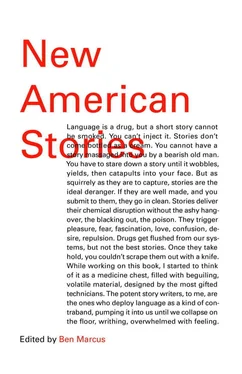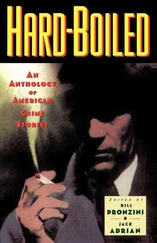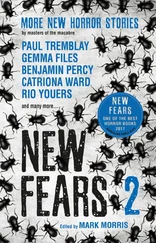I went to Professor Pine for help twice in my life, once as a child and once as an adult. The first time, I was eleven and had fallen into an inexplicable depression. This happened in the spring of 1967, seemingly overnight, and for no reason. Any happiness in me just flew away, like birds up and out of a tree.
Until then I had been a normal, healthy child. My parents had never damaged me in any way. They had given me a dusty, simple childhood on the flatlands of Saskatchewan. I had two best friends — large, unselfish girls who were already gearing up for adolescence, sometimes laughing until they collapsed. I had a dog named Chest, who late at night brought me half-alive things in his teeth — bats with human faces, fluttering birds, speckled, choking mice.
My parents couldn’t help noticing my sadness. They looked at me as if they were afraid of me. Sometimes at the dinner table the silence would be so deep that I felt compelled to reassure them. But when I tried to say that I was all right, my voice would crack and I would feel my face distorting, caving in. I would close my eyes then, and cry.
One night my parents came into my bedroom and sat down on my bed. “Honey,” my father said, “your mother and I have been thinking about you a lot lately. We were thinking that maybe you would consider talking to somebody — you know, a therapist — about what is the matter.” My father was an earnest, cheerful man, a geologist with a brush cut and a big heart. I couldn’t imagine that a therapist would solve my problems, but my father looked hopeful, his large hand tracing a ruffle around my bedspread.
Three days later we were standing outside an office on the fourth floor of the Humanities Building. My appointment was not with a true therapist but rather with a professor of child psychology at the university where my father taught.
We knocked, and a voice called from behind the door in a bit of a singsong, “Come in, you, come in, you.” Of course he was expecting us, but this still seemed odd, as if he knew us very well or as if my father and I were both little children — or elves. The man sitting behind the desk when we entered was wearing a denim shirt, his blond hair slicked back like a rodent’s. He looked surprised — a look that turned out to be permanent. He didn’t stand up, just waved at us. From a cage in the corner three birds squawked. My father approached the desk and stuck out his hand. “Peter Bergen,” my father said.
“Professor Roland Boland Pine,” the man said, and then looked at me. “Hello, girlie.”
Despite this, my father left me alone with him. Perhaps he just thought, as I did, that Professor Pine talked like this, in occasional baby words, because he wanted children to respond as if to other children. I sat in a black leather chair. The professor and I just stared at each other for a while. I didn’t know what to say, and he wasn’t speaking either. It was easy to stare at him. As if I were staring at an animal, I felt no embarrassment.
“Well,” he said at last, “your name is Margit?”
I nodded.
“How are you today, Margit?”
“I’m okay.”
“Do you feel okay?”
“Yes. I feel okay.”
“Do you go to school, Margit?”
“Yes.”
“Do you like your teacher?”
“Not really.”
“Do you hate him?”
“It’s a her.”
“Do you hate her?”
“No.”
“Why are you here, Margit?”
“I don’t know.”
“Is everything okay at home?”
“Yes.”
“Do you love your father?”
“Yes.”
“Do you love your mother?” A long tic broke on his face, from the outer corner of his left eye all the way down to his neck.
“Yes.”
“Is she a lumpy mother?”
“Pardon me?”
“Pardon me, Margit. I meant does your mother love you?”
“Yes.”
“Does she love your father?”
I paused. “Yes.”
“And does he love her?”
“I guess so.”
“Margit, what is the matter?”
“Nothing. I just don’t see why we’re talking about my parents so much.”
“Why don’t they love each other?”
“They do — I said they do.”
“Why can’t you talk about this?”
“Because there’s nothing to talk about.”
“You can tell me the truth. Do they hurt each other? Lots of girls’ parents hurt each other.”
“No, they don’t.”
“Is one of them having an affair, maybe?”
I didn’t say anything. “Maybe?” he repeated.
“Maybe,” I said.
“Which one, Margit? Which one of the babyfaces?”
I stared at him. Another tic passed over his face. “Pardon me, Margit. I meant which one of your parents is having the affair?”
“My dad. But I don’t think he’s actually having it. I just heard him tell my mom a few months ago that he was considering it.”
“And do you think he is?”
“I don’t know. A few weeks ago I picked up the phone and a woman was talking to my dad. She told him that she had to have her breasts removed and asked if that would make a difference.”
“How difficult for you. How sad for the girlie-whirl.” Another tic, like a fault line shifting. “Margit, may I tell you something from my own childhood?”
This worried me, but I said yes.
“When I was young, I loved my mother. She was a real lumper. Then one day, kerpow, she was dead.” He held his forefinger to his head as if it were the barrel of a gun and stared at me for a few seconds without speaking. “It wasn’t actually her, you see, but a woman of about her age who happened to be walking toward me on the sidewalk. A man came running and shot her. I was so devastated that I fell right on top of her. I didn’t care if he shot me, too. I was only ten at the time, and my mother’s death could have scarred me for life. But it didn’t. And do you know how I got from that moment to this one — how I got from there to here, to sitting behind this desk now, talking to you?”
I shook my head. “How?”
“I rose above the situation. Literally I did. I felt my mind lift out of my body, and I stared down at myself leaning over the bleeding woman. I said to myself, very calmly, There is little Roland from New Orleans, the little erky-terk, realizing that someday his mother will die.”
He was looking at me so intently, and his birds were flapping in their cage with such fervor, that I felt I had to say something. “Wow,” I said.
“I suggest you try it, Margit. For every situation there is a proper distance. Growing up is just a matter of gaining perspective. Sometimes you just need to jump up for a moment, a foot above the earth. And sometimes you need to jump very far. It is as if there are thin slats, footholds, from here to the sun, Margit, for the babyfaces to step on. Do you understand?”
“Yes,” I said.
“Slatland, flatland, mapland.”
“Pardon me?”
“Pardon me, Margit. I know so many languages that sometimes I say words out of place.”
At the end of the session I asked him when I should return. He told me that another visit wouldn’t be necessary, that usually his therapy worked the first time.
I didn’t in fact understand what he had said to me, but his theory seemed to help anyway, as if it were a medication that worked whether you understood it or not. That very evening I was having dinner with my parents. It started as the usual dinner — me staring at my plate, my parents staring at me as if I were about to break in two. But about halfway through the meal I started feeling lightheaded. Nothing frightening happened, but I did manage to lift slightly out of myself. I looked down at our tiny family. I saw my father from above, the deep map of his face. I understood in an instant that of course he was having an affair, and that he was torn between my mother and this other, distant woman. I saw my beautiful mother from above, and I could see how she must hate this other woman, yet sympathize as well, because this other woman was very ill. I understood how complicated it was to be an adult, and how haunting, and how lovely. I longed to be back in my body then, to be breathing and eating, straining toward maturity. And when I returned, one split second later, I hugged my parents, one after the other, with a spontaneity that a depressed person could never muster.
Читать дальше










![Женя Джентбаев - neo futura [stories]](/books/692472/zhenya-dzhentbaev-neo-futura-stories-thumb.webp)

